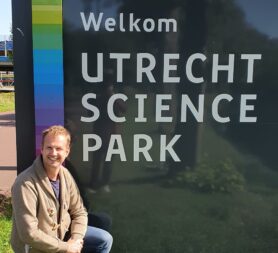Plastic Pollution
About us
Tons of plastic, everywhere. Science-based solutions and alternatives to environmental plastics.
You’ve heard it, we’ve heard it: There’s plastic in the sea, there’s plastic in the oceans, there’s plastic all around us. There’s so much plastic that you can find entire islands floating around the sea that are made of nothing but plastic.
Due to this so called ‘plastic pollution’, the price of your small Coca Cola bottle from the vending machine will be 15 cents higher. Why? Because there will be a 15-cent deposit on it so you will return it and, in that way, improve recycling. Putting the cap back on the bottle before you throw it out is another, easy way to improve recycling. Not everybody likes that, however.
So, there are a lot of ideas to stimulate recycling and reduce plastic waste. But what is the problem with all this plastic, what can we do about the plastic that is already within the environment, and are there alternatives?
We hope to help you foster a deeper understanding of why plastics in the environment are harmful, how it affects us personally, and what you can do about it. In the end, we hope you’ll understand why you should return your small Coca Cola bottle.
Who are we?
Marie Bartning
Hi! I’m Marie and I love discovering patterns and relations. This fits well with my two biggest passions: our language and our environment. I am fascinated by the question how the use of language is shaping our attitudes and emotions. In my work as a scientist I try to combine the worlds of language, psychology and conservation to help tackling climate change. How we talk about climate change and environmental pollution in the news, in politics and our daily needs a fresh makeover. I want to make a start by making environmental topics understandable, interesting and, yes –fun!
Shira Bonnink
Hi there, my name is Shira and I’ve always loved biology. How the human body works fascinates me, but also other animals, plants, and nature in general. Unfortunately, biology can be difficult to understand, since science is often communicated in a complex way with a lot of specific words that only scientists know. However, biology plays an important role in our daily lives and, therefore, I like to make biology more understandable and accessible for everyone. Feel free to contact me if you have any comments, questions or advise!
Rob van Rijn

I think you know the sound of a clicking Geiger Counter? You probably heard it, in a movie, documentary or playing a game. Every year I try to guide about 5000 high school students in working with radioactive materials their self’s! Most of the time at your own high school, but sometimes even at a nuclear facility like the Nuclear waste facility COVRA (check the background of this site, it’s images of a cloudchamber) or at a Nucleair Research Plant. My name is Rob, I studied physics and became a radiation safety expert after that. This allows me to visit most of your schools and make hands on experiments with you all possible. Together with my colleagues we visit about 300 high schools throughout the Netherlands. You want to contact me? Find me on Insta, or twitter. You can also mail me, but since I travel all through The Netherlands I wouldn’t recommend yelling ?
Wytze Zwierstra
Hi, I’m Wytze. I’m a biologist that likes to translate complicated science.
What comes out are, hopefully, stories that explain them in a clear and accessible way.
Beautiful, natural landscapes are what I get up for in the morning and I dedicate a lot of time to keeping them that way.
Feedback and criticism are a big part of these processes, so feel free to contact me.
If I don’t respond, I’m probably on a walk so just yell really hard.

